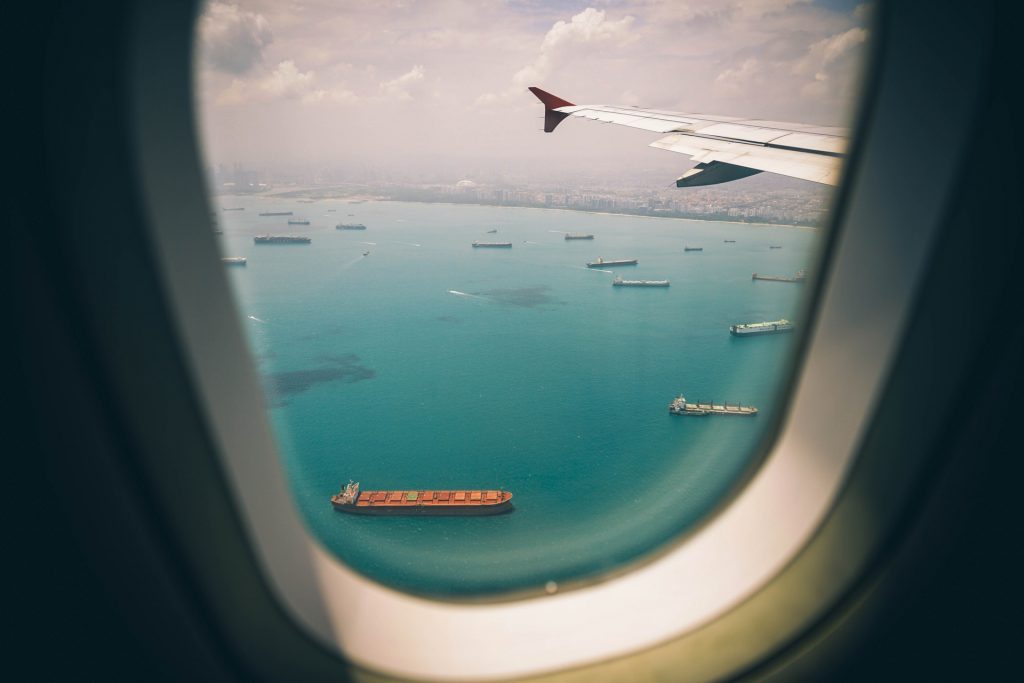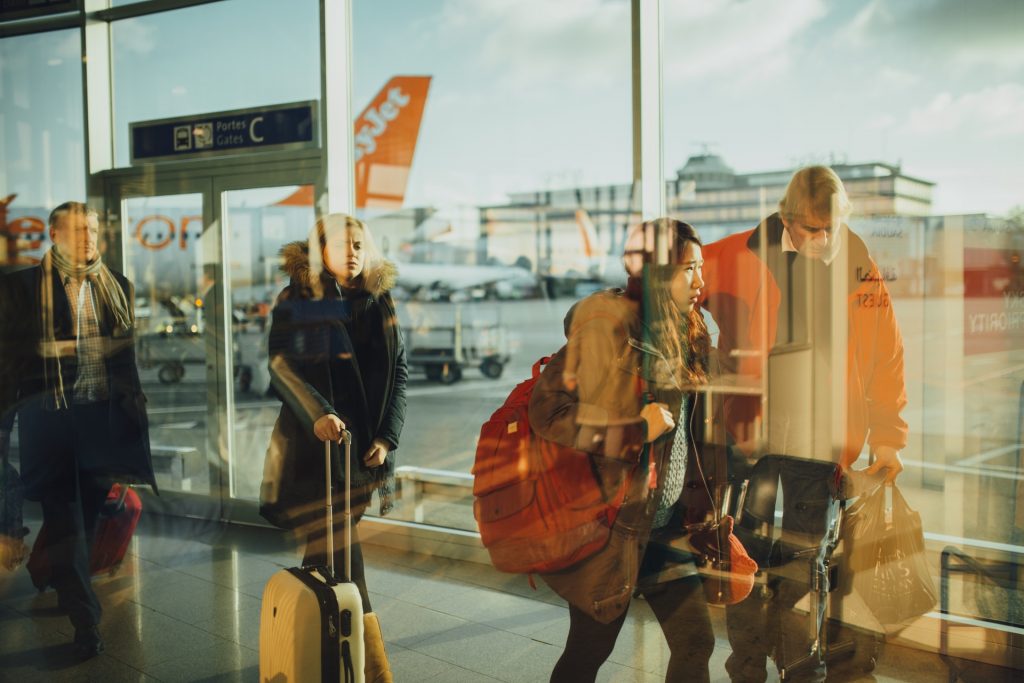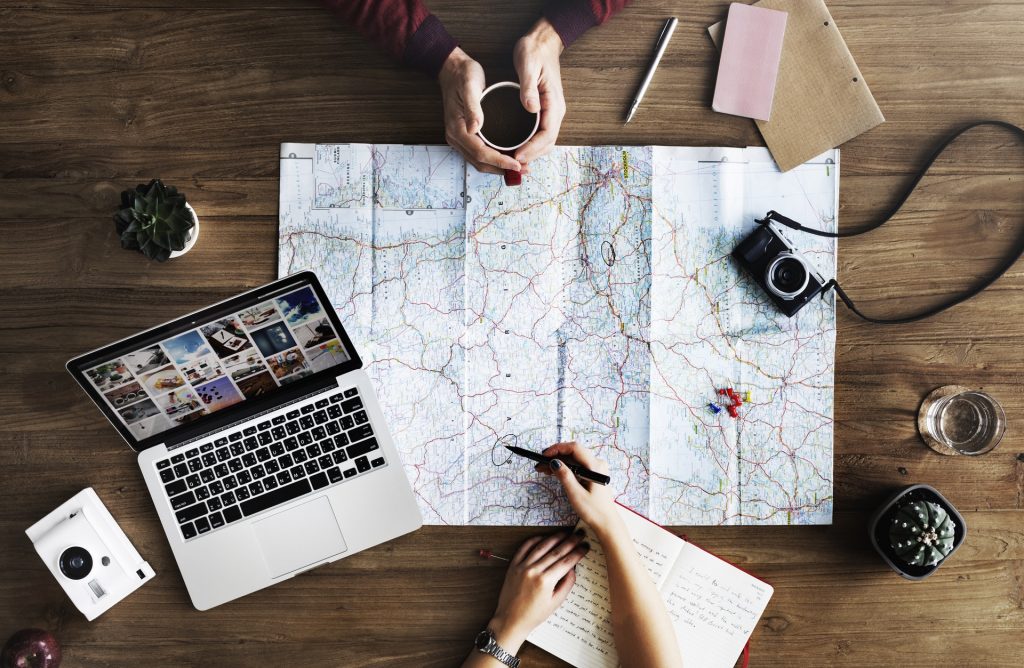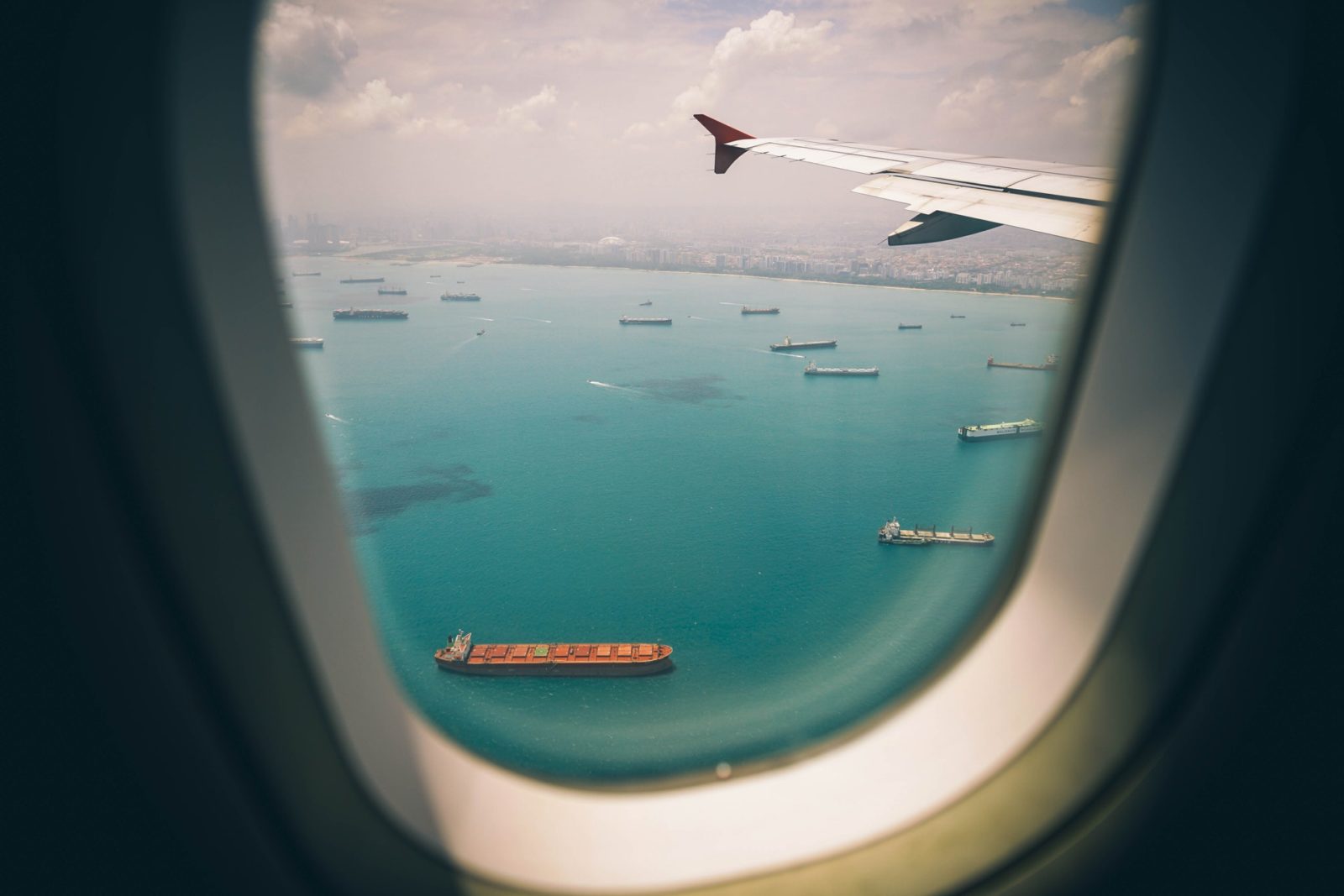Traveling for work or pleasure can be exciting. Being able to experience a new place, taste new food and meet new people. However, the experience can also be exhausting, as can the return home. Jet lag is that unpleasant feeling. If one is traveling vertically or not changing time zones jet lag will not be an issue. However, if an individual is traveling past 5 or more time zones the effects of jet lag will be felt and one’s circadian rhythm will be off-balance.
What is Jet Jag?
Jet lag is a recognized sleep disorder which is a result of the rapid crossing over multiple time zones consequently disturbing the synchronicity of the circadian rhythm (Sack, R.L., 2010).
Jet lag is not only attributed to trouble sleeping (insomnia) or adjusting to the new location, it causes a lot of issues for the body;
- depression
- fatigue/lethargy
- headaches/dizziness
- loss of concentration/poor memory
- irritability
- gastrointestinal disturbances (indigestion, loss of appetite, bowel irregularity).
- physical weakness
- daytime sleepiness
- poor alertness during the daytime
Such symptoms and issues can be drastically worse for elderly individuals as well as individuals who cross 5 or more time zones (Waterhouse, J., et al., 1997). Insomnia and other symptoms of jet lag will persist until one’s circadian rhythm is balanced. Therefore, the individual needs to rebalance their sleep-wake cycle to ensure that their body and brain are functioning optimally.

What To Do During Your Flight
Long flights can get uncomfortable, therefore it is good to pack a few flying essentials to make the duration of the flight comfortable for the mind and body, aiding in the reduction of the severity of jet lag symptoms and issues.
Stay Hydrated
Do not consume alcohol during your flight. The dry air in the cabin is itself very dehydrating, it is important to keep the body well hydrated. Before getting on the plane it is wise to purchase a bottle of water or bring an empty water bottle that you can fill up before getting on the plane. During the flight, stay away from sugary pops, black teas and coffee as well as they are diuretics and will result in water loss from the body. A well-hydrated body will have an easier time falling asleep and will have an easier time adjusting the circadian rhythm.
Magnesium Citrate
Magnesium citrate will aid in relaxing the body during the flight, relieving tension from the muscles as well as relaxing the digestive tract. Gastrointestinal disturbances, which jet lag can cause will also make it harder for the body to become reaccustomed to the new time zone. Bringing packets of magnesium citrate on the plane with you is a great way to manage the symptoms of jet lag.
Sleeping
Bring an eye mask with you and a comfortable pillow to make sleeping on the plane easier on the body. Sleeping on the plane should depend on when you leave and when you will arrive at your destination. If you leave one-time zone in the early or late evening and arrive at your destination in the morning, it is a good idea to get in as much sleep as possible. However, if you are leaving in the morning and arrive at your destination during the night time it is best to leave the sleeping until you get there (Waterhouse, J., et al., 1997).
What to do at Your New Destination
Medication and sleeping pills do not need to be the answer to jet lag. Numerous natural treatments can be used to get the body back into synchronicity and sleep better as a result.
Melatonin
Melatonin is a hormone that is manufactured in the pituitary gland of the brain and is responsible for influencing the sleep and wake cycle of the body. It is a proven and very effective solution for jet lag (Arendt, J., et al., 1986).
Melatonin will allow the body to begin to re-establish a normal sleep pattern at the new destination (Petrie, K.J., 1989).
How to take Melatonin to beat Jet Lag?
The day you arrive at your new destination it is important to take between 3-5 mg of melatonin at around 2100 hr to 2200 hr (time pertaining to the new location). This dosage should be taken for up to five days (Petrie, K., et al., 1993).
It has been shown that individuals fall asleep quicker and experience more restful sleep when 5mg of melatonin is taken. Taking a greater dosage (over 5mg) does not produce better results or provide greater benefits (Herxheimer, A., & Petrie, K.J., 2002). Furthermore, as soon as symptoms of jet lag have subsided it is important to stop supplementing with melatonin and allow the body to make it.
Note: Do not take time-release melatonin as it does not work very effectively.
Here Comes The Sun – First Thing in the Morning
Set an alarm, so that you become accustomed to waking up in the morning instead of waking up later in the day. As soon as you wake up at your new destination allow your eyes and whole body to be immersed in daylight (Takahashi, T., et al., 2002). If daylight is not available (depending on the time of year) turn on the lights throughout your living quarters. 500 lux or more is enough to adjust the body and circadian rhythm to the new time zone (Waterhouse, J., et al., 1997).

Herbals To Help You Sleep
Valerian
Valerian is a strong sedative, hypnotic, anti-spasmodic, hypotensive and carminative. It is best if one begins to take it a week before the flight and continues afterward the effectiveness of this sleep-inducing herb will be very effective at getting one to sleep and readjusting the circadian rhythm (Wheatley, D., 2005). Valerian aids in releasing tension and is a very good cure for insomnia. It may not work for all people (though it does work for most), therefore it is best to try it before leaving on a trip to see if it will be effective for you (Hoffman, D., 1990).
How to Take Valerian
It is best taken as a tincture or as a tea an hour before the desired bedtime.
- 1-2 tsp of valerian root, steeped in hot water for between 10 to 15 minutes
- 2-4 ml of valerian tincture taken twice a day. Once after dinner and once before bed.
Supplementing with valerian capsules can also be done. Follow instructions on the bottle. Make sure to not take the supplement on an empty stomach (Hoffman, D., 1990).
A lot of tea companies these days will have combination teas that aid in inducing sleep. Yogi tea is one such brand and their Restful Sleep tea, a combination of valerian, chamomile, passionflower, and skullcap relax the body and aid in inducing restful sleep.
If one is unable to take valerian it is also beneficial to make a tea that calms and relieves tension. Yogi tea also makes a great Calming tea that uses Skullcap, which is also a great sedative and nerve tonic.
Aromatherapy
Essential oils can work wonders on the body if the right oil is used. To aid in inducing sleep essential oils such as lavender, chamomile and ylang-ylang are great. Either for inhalation (directly into the nose or via a diffuser), added into a bath or rubbed onto the skin with a carrier oil each of these oils individually or used in combination will aid in relaxing the body, getting rid of anxiety and bring upon restful sleep.
It is great to use aromatherapy as part of good sleep hygiene and in combination with melatonin at the beginning of one’s stay at their new destination. Especially if the stay is short, lasting no longer than 3 days, aromatherapy is a very easy solution to get to sleep without dealing with too many different sleep-inducing products.
A blend of clary sage, Roman chamomile, lavender, and mandarin essential oils can relax the body. To reduce any traveler’s anxiety try a blend of ylang-ylang, frankincense, geranium, vetiver and lime essential oils. I recommend using a combination of both as with jet lag the physical and mental body will be under stress and relieving any anxiety or tension is beneficial.
Exercise
Exercise is a great way to regulate and balance your circadian rhythm and get one past the effects of jet lag. The day of landing partaking in a quick run, jog, swim, yoga practice or even a fast-paced walk can make the world of a difference. Continue exercising a little each day and you will find that it is a lot easier to beat jet lag (Greenfield, B., 2014).

Good Sleep Hygiene
Whether it is at home or abroad it is essential to practice good sleep hygiene. An hour before you plan to head to sleep decrease the brightness of the lights in your living quarters. Bright lights keep the body awake and prevent the natural production of melatonin. Don’t use any electronic devices before going to bed, instead read a book or take a relaxing bath.
Make yourself some tea that aids in inducing sleep and begin to slow your pace down. Get into comfortable clothing. Brush your teeth, wash your face, moisturize your body and reduce stress. At the beginning of your one hour journey into bringing on sleep take your melatonin supplement. By the time the hour is up you should be tucked in bed, lights out and drifting off to sleep.
Use an eye mask to make sure that no light is interfering with your own bodies’ manufacturing of melatonin. Furthermore, make sure to have gone to the washroom before and don’t forget to get yourself a glass of water so that in case you get thirsty in the middle of the night you don’t have far to go.
Other Tips
- If you have an important event or meeting arrive a few days early so that you can give your body and mind the time to rebalance and work at their optimal level. This is essential for athletes, performers, and people of business.
- If jet lag strongly affects you, consider a stopover that lasts a day so that the adjustment of your circadian rhythm is easier. However, if this would cause great stress than benefits do not pursue it.
- Grounding one’s body back to the earth after landing is another great tip for healing and aiding the body on its path to rebalance the circadian rhythm and move past jet lag. Doing a grounding exercise, yoga or walking barefoot on grass are all great ways to ground oneself to the earth again, especially after flying so high in the air for many hours.

References
Arendt, J., Aldhouse, M & Marks, V. (1986). Alleviation of jet lag by melatonin: Preliminary results of controlled double-blind trial. British Medical Journal, Volume 292, page 1170. Online available at PubMed
Greenfield, B. (2014). Beyond Training. Mastering endurance, health, and life. Victory Belt Publishing Inc.: Las Vegas.
Herxheimer, A., & Petrie, K.J. (2002). Melatonin for the prevention and treatment of jet lag. Cochrane Database of Systemic Reviews. Issue 2.
Hoffman, D. (1990). Holistic Herbal: A safe and practical guide to making and using herbal remedies. Thorsons: Great Britain.
Petrie, K.J., Conagien, L., Thompson, K., & Chamberlin. (1989). Effects of melatonin on jet lag after long haul flight. BMJ, 298:705. Online Available at PubMed.
Sack, R.L. (2010). Jet Lag. The New England Journal of Medicine. 363:440-447.
Takahashi, T., Sasaki, M., Itoh, H., Yamadera, W., Ozone, M., Obuchi, K., Hayashida, K., Matsunaga, N., & Sano, H. (2002). Melatonin alleviates jet lag symptoms caused by an 11-hour eastwardly flight. Psychiatry and Clinical Neuroscience. Volume 53, Issue 3, pages 301-302. Online Available at PubMed.
Waterhouse, J., Reilly, T., & Atkinson, G. (1997). Jet Lag. The Lancet, Volume 350, Pages 1611 -1616.
Wheatley, D. (2005). Medicinal plants for insomnia; A review of their pharmacology, efficacy, and tolerability. Journal of Psychopharmacology. Volume 19, Issue 4, pages 414-421. Online Available at PubMed.
Amanda Filipowicz is a certified nutritional practitioner (CNP) with a bachelor in environmental studies (BES) from York University. She also has certification in clinical detoxification, prenatal and postnatal care as well as nutrition for mental health. She has been working as a nutritionist since 2013 and is a lifelong proponent of eating healthy.

